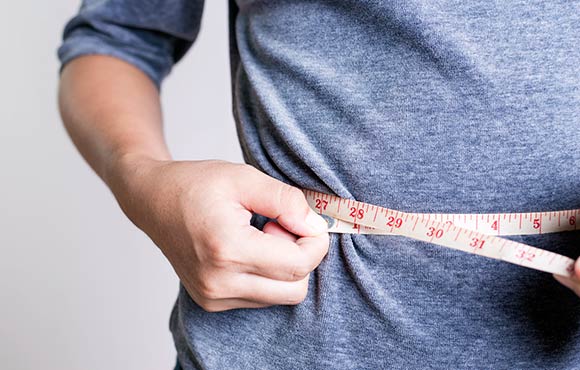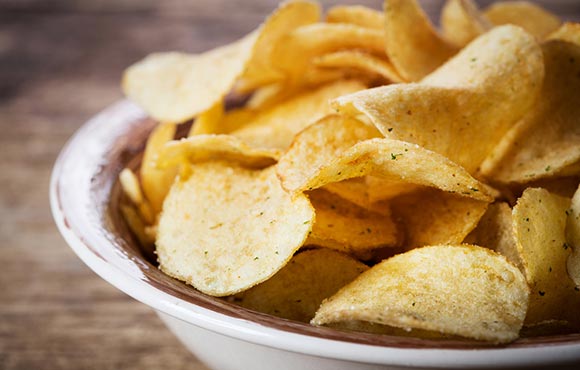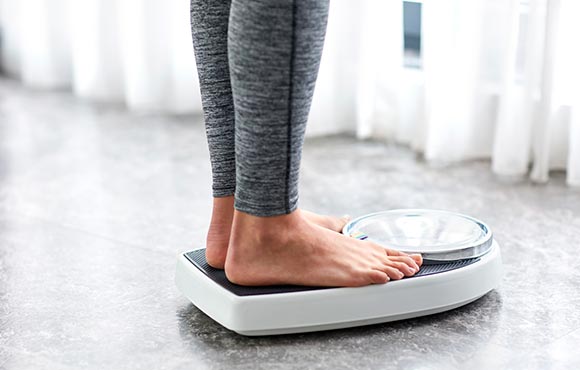In fact, recent statistics show that 45 million Americans go on a diet each year, but only five percent of them actually keep the weight off.
If you’re a serial dieter, there’s a good chance you’ve lost and gained the same 10 pounds several times in your life. This vicious cycle of losing and gaining weight is often a result of extreme dieting, which includes drastically reducing the number of calories you eat.
Although cutting calories is an effective strategy to use when losing weight, eating too few calories can actually lead to weight gain. Here’s why:
Your metabolism might slow down.
1 of 8
Sure, one of the most effective ways to lose weight is to reduce the number of calories you eat. But eating too few calories can also trigger what's known as "starvation mode."
"Restricting intake is physiologically interpreted as a threat to the body," explains Emily Braaten, MS, RD, LD. The body's metabolism then declines because it's trying to conserve energy. With a lower metabolism, your body isn't burning as many calories, making it even easier to gain weight.
You might binge on certain foods.
2 of 8
Depriving yourself of certain foods, especially the ones you love, can trigger binge eating. Braaten says this psychological component of weight loss often leads to a cycle of dieting, bingeing and then dieting again (while vowing to do better this time). The problem occurs when the bingeing becomes so excessive that you regain the weight you lost while dieting.
You can become constipated.
3 of 8
If your diet is lacking in the appropriate number of calories and fibrous foods that help move waste through the body, there's a good chance you're going to experience some plumbing problems. When you become constipated, your stomach feels bloated and you may even see the number on the scale increase. One of the best ways to stay regular is to eat whole foods including fruits, vegetables, complex carbohydrates, lean protein and healthy fats.
You don't have enough energy to exercise.
4 of 8
Extreme diets very rarely provide you with all of the nutrients you need to maintain health, let alone engage in regular exercise. Because of this, your body experiences physical fatigue, which leads to a reduction in physical activity. Worse yet, as nutritionist Anna Baker explains, depending on the length of the diet and the amount of micronutrients consumed (or not consumed), fatigue can last even after the diet ends.
Your extreme diet doesn't allow for any wiggle room.
5 of 8
When you establish very strict rules around eating, it doesn't allow for much wiggle room to live a normal life. Going out with friends becomes difficult, eating at work is challenging and family meals suffer. When this happens, you might find it difficult to stick to the rigid rules of a diet. This can increase your chances of giving up altogether and, consequently, may trigger overeating and weight gain.
You gain weight when you go back to a "normal" way of eating.
6 of 8
Most extreme diets aren't meant to last long-term. Once you've reached your goal, it's fairly common to reintroduce some (or all) of the foods you cut out while trying to lose weight. Since your body has become accustomed to certain foods and a fixed caloric intake, there's a good chance you will gain weight as soon as you return to your previous eating habits.
In fact, it's likely that some of the weight you lost in the first place may even be "false" weight or water weight, says Baker, since water retention fluctuates based on your eating habits.
Your cortisol may increase.
7 of 8
Studies have shown that low calorie diets increase the body's cortisol output. Why is this a concern? "Cortisol is a steroid hormone involved in the body's stress mechanisms," Baker says. Increased cortisol levels in the body can cause side effects such as acne outbreaks, tiredness, muscle weakness, depression and weight gain.







Discuss This Article